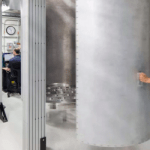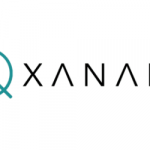Interview with Honeywell’s Tony Uttley and The Quest For Quantum

(Forbes) Forbes’ contributor Patrick Moorhead interviews Honeywell’s President of Honeywell’s Quantum Solutions unit, Tony Uttley.
Uttley stressed we are now in the early days of quantum computing. Uttley shared a useful analogy: when classical computers were being developed, at the time, people thought there would only need to be a handful of them in the world. Sixty years later, and most people carry around their tiny computers in their pockets wherever they go. Computers have progressed and become more ubiquitous and profitable than anyone could have possibly imagined in the early days.
Uttley got his career start at NASA’s Johnson Space Center, as the operations manager at NASA’s Neutral Buoyancy Laboratory excited to apply his skills to the space program. He spent a decade at NASA, but at some point along the way realized that he was better at convincing “really, really smart people” to do things than actually doing them himself. This led to him transitioning to the world of strategy consulting, where he ended up working for the Boston Consulting Group for seven years.
Honeywell’s quantum exploration began with two Ph.D. researchers coming forward with an intriguing proposition: Honeywell’s broad scope of technology was already uniquely suited to take on building a quantum computer. The company was already a leading manufacturer of hardware and software control systems, advanced electronics and optics and photonics. Uttley admitted he was initially skeptical due to it still being the very early days of quantum computing at the time.
After the company felt like it had developed a differentiated capability with real potential, it formed a full team around the project, employing atomic, molecular, and optical physicists and other scientists, technicians, and engineers with specializations in trapped-ion quantum computing.
He went on to say that the scarcest resource right now, as quantum moves forward, is the lack of people. As he puts it, all the people who know how to do quantum computing have been “gobbled up” by companies such as Honeywell, startups, national labs, or academia. The next capacity constraint, according to Uttley, lies in the quantum computing systems themselves.



















